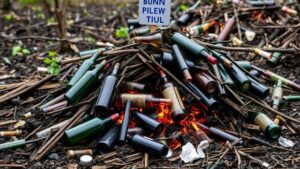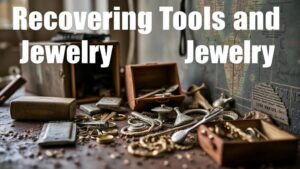How to Find Collectors Interested in Specific Historical Relics
How to Find Collectors Interested in Specific Historical Relics
The world of historical relics can be both fascinating and lucrative for collectors, historians, and enthusiasts alike. Whether one is looking to trade or sell specific historical artifacts, understanding how to identify and connect with potential collectors is essential. This article explores effective strategies for finding collectors interested in specific historical relics, encompassing methods ranging from online platforms to localized networks.
Understanding the Collector Landscape
Before diving into practical strategies, it is important to grasp the different types of collectors who might be interested in specific historical relics. Collectors vary widely in terms of focus areas, ranging from military memorabilia to antiquities, and understanding these subsets can help tailor outreach efforts.
- General Collectors: These individuals may have a diverse collection that spans multiple categories.
- Specialized Collectors: These collectors focus on a particular niche, such as Civil War artifacts, vintage coins, or antique weapons.
- Institutional Collectors: Museums and historical societies often seek to acquire artifacts for educational purposes.
Online Platforms for Connecting with Collectors
The internet offers a plethora of opportunities to connect with collectors, making it easier than ever to showcase specific historical relics. Here are several effective online platforms and tools:
- Collectors’ Forums: Websites such as Collectors Society and The Civil War Forum allow enthusiasts to discuss, buy, and sell relics.
- Social Media: Platforms like Facebook and Instagram host groups dedicated to various collecting interests, which can serve as excellent venues for outreach.
- Online Marketplaces: eBay, Etsy, and specialized retail sites like Catawiki provide a platform where historical relics can be listed and marketed to collectors.
For example, a collector wanting to sell a rare 19th-century coin might achieve success on eBay by using relevant keywords and quality images to attract attention from potential buyers. According to a recent eBay report, collectibles have seen a 40% increase in sales year-over-year, emphasizing the importance of utilizing these platforms.
Local Networking Opportunities
Also to online platforms, local networking remains a significant pathway for connecting with collectors. Here are strategic avenues to explore:
- Antique Shows and Fairs: Participating in local antique shows allows direct engagement with collectors and provides an opportunity to understand market value and demand.
- Collector Clubs and Associations: Joining organizations such as the American Numismatic Association or specialized clubs can facilitate networking with dedicated collectors.
- Local Museums and Historical Societies: Building relationships with these institutions can lead to insights on collector interest and opportunities to host or attend events.
An illustrative example would be attending a Civil War memorabilia show where one could meet niche collectors, potentially leading to offers on specific items. These face-to-face interactions can often yield better connections than online transactions.
Utilizing Auctions and Consignment Shops
Auctions can serve as a powerful tool in connecting with collectors, particularly for high-value or rare items. Here are effective ways to leverage this avenue:
- Consignment Auctions: Partnering with auction houses that specialize in historical artifacts can provide exposure to serious collectors, often leading to competitive bidding.
- Online Auctions: Utilizing platforms like Heritage Auctions or Sotheby’s can broaden reach beyond local collectors, attracting international interest.
- Gallery Showings: Some auction houses provide opportunities for individual sellers to showcase items in person, thereby attracting the right demographic.
A notable case study involves a rare Martin Luther King Jr. letter sold at auction, which drew significant interest from both private collectors and institutions. The auction house effectively marketed this item through their network, achieving a sale price far above its estimated value.
Engaging with Experts and Appraisers
Another strategic method to connect with collectors is by engaging with experts in the field. These individuals offer valuable insights and can help bridge the gap between seller and collector:
- Professional Appraisers: Certified appraisers can assess the value of historical relics, thus guiding sellers on pricing strategies tailored for specific collectors.
- Conservation Experts: Experts who specialize in preserving historical artifacts can provide recommendations on care and presentation, making them more appealing to collectors.
- Academic Connections: Engaging with historians or professors teaching courses on relevant topics can lead to introductions to serious collectors.
For example, a well-preserved World War II artifact discussed in a university setting might attract the attention of history-focused collectors, thereby facilitating sales opportunities.
Actionable Takeaways
In summary, finding collectors interested in specific historical relics requires a multifaceted approach that includes online engagement, local networking, auction involvement, and collaboration with experts. Here are actionable steps to consider:
- Identify specific types of collectors based on your relics characteristics.
- Use online platforms and social media to showcase your items where collectors congregate.
- Attend local antique shows and participate in collector clubs to build relationships.
- Consider auctions for rare items to tap into knowledgeable buyers.
- Engage with appraisers and experts to enhance the viability of your relics in the market.
By applying these strategies, relic sellers and enthusiasts can effectively connect with interested collectors, ensuring that valuable historical artifacts are appreciated by those who value them most.


